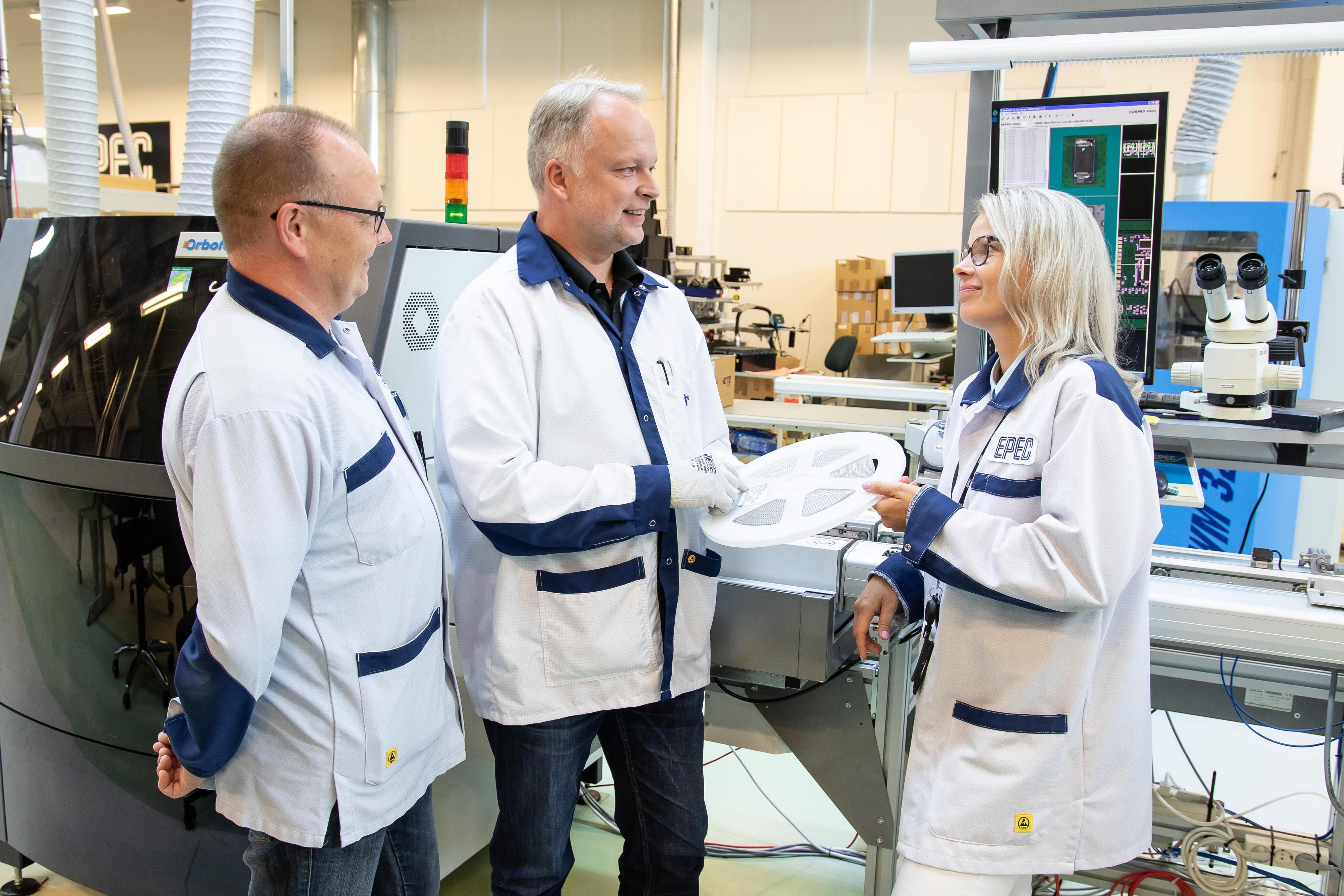As expressed in our previous blog entries, Epec is excellent at quickly responding to changes in the market, because our decision making is immediate as different functions are all located under one roof. We have also been able to successfully react to challenges in the availability of the components, which started to form gradually in the Fall of 2017. The situation has been monitored closely and many types of measures have been taken, allowing us to deliver control units to our customers according to schedule and keep our production running.
The challenge with the availability of the components is, in our view, a result of three factors. Firstly, production capacity is insufficient in relation to demand. Secondly, the scarcity of raw materials, such as silicon and nickel, because mining is greatly limited by environmental policies of the Chinese government. Finally, the most important factor is the number of components in a single electronic device continues to grow exponentially. For example,
- A wireless charger for a mobile phone has a tenfold of resistors, compared to a standard model
- The electrification of cars advances fast; the number of passives in a normal sedan has quintupled only in a few years, and development continues at a fast pace
Currently, the most challenging market situation is for ceramic capacitors (MLCC). According to manufacturers, the amount of orders is double/triple the delivery capacity. Delivery times are alarmingly long, in some cases over two years, and for some types, new orders are no longer accepted.
Long delivery times can be dealt with by placing binding orders well beforehand. From Epec’s point of view, the most difficult aspect is that promised delivery times from manufacturers keep getting pushed to later dates; this is happening daily. This naturally affects the pricing of capacitors, and prices seem to have gotten out of hand. Manufacturers have begun investing in new factory capacity, but the ramp-up of factories takes approximately one and a half years. For this reason, it is estimated that this challenging situation will continue at the least until the end of 2019. It is also likely that the availability of other passives and semiconductors will not improve in the coming months.
I would like to thank Epec’s acquisition team Ville Mäkelä and Jarno Tikkala for their excellent contribution and fast maneuvers in maintaining the continuity of our production. Also, a big thank you to our partner network for their contribution to ensuring the functioning of the logistic chain. To our respected customers, we continue to do everything we can to ensure the delivery of control systems to your production lines in time.


